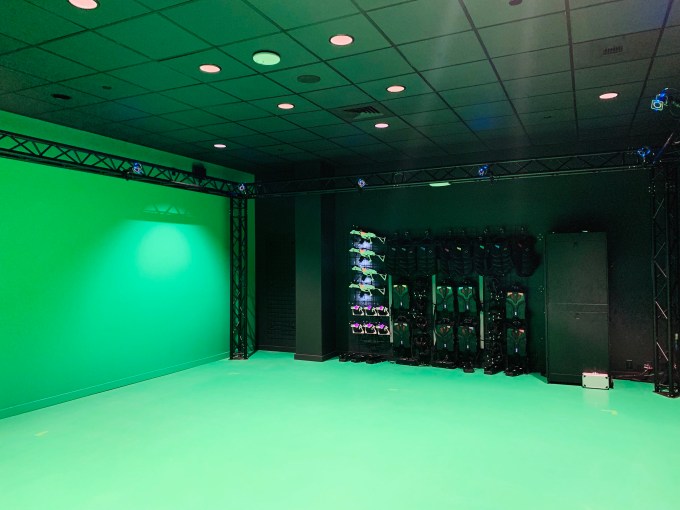Business
Sandbox VR raises millions more in celebrity party round

How funding rounds are classified these days has much more to do with positioning than any VC definitions, but it’s still true that nothing has quite the pizzazz as the “strategic investment” celebrity party round.
Sandbox VR, a location-based virtual reality startup that capped off a huge $68 million Series A led by Andreessen Horowitz at the beginning of the year, is bringing on some new investors in a $11 million “strategic” round; let’s call this one the Series A-listers round.
Yeah, there were a couple of Silicon Valley folks, David Sacks and the Andreessen Horowitz Cultural Leadership Fund led the round, but they joined the much glitzier names of celebs, including Justin Timberlake, Katy Perry, Orlando Bloom and Will Smith. Other investors include Michael Ovitz, Honda Keisuke and Kevin Durant. Some of the investors in this latest round don’t have much in common beyond being LPs in the Andreessen Horowitz Cultural Leadership Fund, which seems to be the glue holding these stars together.

Sandbox VR operates physical spaces, generally in retail locations, in which users can play multiplayer virtual reality games with friends. It’s a next-generation arcade of sorts that’s relying on expensive new technology to attract customers, but that formula hasn’t been a slam dunk for plenty of other VR startups, and it has forced the leadership to get creative.
“It’s a difficult space to be in, because it’s one of those spaces where you have to be three startups in one,” Sandbox VR exec Siqi Chen told TechCrunch in an interview. “You have to build your own content, build your own technology and construct and operate retail locations.”
While most virtual reality startups that have raised substantial amounts of capital have had to dump it into R&D, Sandbox’s business is more focused on pinning virtual reality experiences to physical real estate giving the curious a hub to try out the technology.
Sandbox has plenty of obstacles ahead, the most dire of which will be building a content ecosystem that’s exclusive to the system. Even Facebook’s Oculus has struggled to court established studios to the system without bankrolling development, a process that could get very expensive very quickly for Sandbox. Consumer expectations are also quite high given the steep $48 ticket price for the 30-minute experience. Sandbox recently partnered with CBS Interactive Studios to create a title based on Star Trek IP.
Sandbox will have to compete with consumer headsets like the Oculus Quest that are far cheaper and simpler than previous-generation at-home headsets. The startup also will have to find ways to deepen experiences while still relying on plenty of off-the-shelf consumer hardware. Sandbox’s success relies at least a bit on consumer VR headset adoption growing at a sluggish pace, something Facebook is still spending billions to accelerate.
Generating venture-sized returns will undoubtedly involve more than jacking up ticket prices for more immersive games, though we haven’t heard much of a grand vision from the young startup yet. Whatever Sandbox does, the team is going to have to walk in the same footsteps of many VR companies before it, all while improving perceptions of the technology, something the company’s executives hope their new celebrity investor friends can help with.
For Sandbox, gathering attention from celebrities like Kanye West has already been part of the strategy. “Part of it is brand, in that VR is not perceived as a cool thing to do,” Chen says. “So having influential people on board helps with that perception a bit.”
Sandbox has 16 locations planned by the end of 2020. The company has now raised a whopping $82 million.
-

 Entertainment6 days ago
Entertainment6 days ago‘Dune: Prophecy’ review: The Bene Gesserit shine in this sci-fi showstopper
-

 Entertainment5 days ago
Entertainment5 days agoBlack Friday 2024: The greatest early deals in Australia – live now
-

 Entertainment4 days ago
Entertainment4 days agoHow to watch ‘Smile 2’ at home: When is it streaming?
-

 Entertainment4 days ago
Entertainment4 days ago‘Wicked’ review: Ariana Grande and Cynthia Erivo aspire to movie musical magic
-

 Entertainment3 days ago
Entertainment3 days agoA24 is selling chocolate now. But what would their films actually taste like?
-

 Entertainment3 days ago
Entertainment3 days agoNew teen video-viewing guidelines: What you should know
-

 Entertainment2 days ago
Entertainment2 days agoGreatest Amazon Black Friday deals: Early savings on Fire TVs, robot vacuums, and MacBooks
-

 Entertainment2 days ago
Entertainment2 days ago2024 Black Friday ads: Greatest deals from Target, Greatest Buy, Walmart, Kohls, and more















